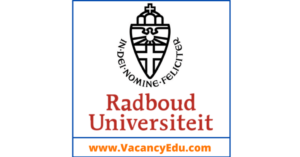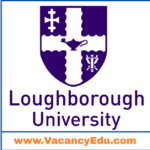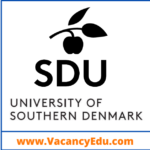Radboud University, Nijmegen, Netherlands invites online Application for number of Fully Funded PhD Degree at various Departments. We are providing a list of Fully Funded PhD Programs available at Radboud University, Nijmegen, Netherlands .
Eligible candidate may Apply as soon as possible.
(01) PhD Degree – Fully Funded
PhD position summary/title: PhD Candidate: The Early Modern Economic and Social History Research Project ‘Business as Usual: the informal institutions of merchants in the early modern period’
We offer you the opportunity to develop and carry out your own PhD project within the areas of expertise of your supervisors: Dr Joris van den Tol, Dr Sanne Muurling and Prof. Jan Kok. The project will be funded by a Starters Grant from the Faculty of Arts awarded to Dr Joris van den Tol.
‘Institutions,’ Nobel laureate Douglas North wrote, ‘are the humanly devised constraints that structure political, economic, and social interaction’ (North 1991). Institutions can be formal (e.g. laws, constitutions, property rights) or informal (e.g. taboos, traditions, norms, or customs). To answer the questions why early modern merchants made certain choices and how they shaped, negotiated and used informal institutions, this project studies the representations of European merchants’ norms and values in their correspondence.
Traditionally, merchants’ correspondence has been used by historians to reconstruct mechanisms of trust within an economic network (Lamikiz 2017; Wubs-Mrozewicz 2020; Trivellato 2009). Moreover, there has been a tendency to focus on merchants with more or less complete archives such as Marco Datini in Italy (ca. 1335-1410) or Simon Ruiz in Spain (1558-1598), or on correspondences captured as part of prize papers. This project, instead, prefers to focus on preserved ‘letter books’ or ‘copy books’ of lesser known or sometimes even unidentified merchants. This project looks beyond mechanisms of trust and studies sets of merchants’ practices and decisions described in their correspondence to unearth their informal institutions such as norms or customs.
Deadline : 16 June 2024
(02) PhD Degree – Fully Funded
PhD position summary/title: PhD Candidate: Developing laser-based spectroscopy systems for gas phase contamination detection in real-life applications
As a PhD candidate, you will identify and characterise the major gas-phase contaminants in these two applications, their origins and concentrations. You will do so with the help of leading national and international institutes and companies in the corresponding field. This involves developing new set-ups to mimic the application conditions in the lab and performing measurements in the field at the commercial partners. The goal is to portray a full picture of the major contaminants and finally design efficient and cost-effective new instruments using broadband laser-based spectroscopy for the identified targets.
Research in the Trace Detection Laboratory (TDLab) focuses on the detection of species in trace levels with a higher emphasis on the gas phase. For this, we use various analytical laboratory instruments based on mass spectrometry and Fourier transform spectroscopy (FTS) and are developing new laser-based spectroscopic instruments for specific applications. These applications are very broad: agri-food industry, pollution monitoring, bio-medical and disease detection, emission/exposure measurement, and more. In this project, you will be using existing laboratory instruments, as well as developing new spectroscopic methods for detecting a specific contaminant (or specific sets of contaminants). Your teaching load may be up to 10% of your working time.
Deadline :01 August 2024
View All Fully Funded PhD Positions Click Here
(03) PhD Degree – Fully Funded
PhD position summary/title: PhD Candidate in Condensed Matter Physics for the Synthesis of 2D Materials
Recently, two-dimensional (2D) materials, e.g. graphene, have gained much attention in research for their special physical properties compared to their three-dimensional counterparts. Halides or transition metal dichalcogenides in particular, but also many other material compounds, show great potential for future device applications because of their special superconducting, magnetic or transport properties. However, typically these materials are very reactive and deteriorate quickly under ambient conditions or even in the dry atmosphere of a glove box.
Your goal will be to establish a new synthesis method and subsequently investigate these materials using local probes at ultra-low temperatures, including scanning probe microscopy and magneto-transport. Using these newly developed material systems, you will investigate physical phenomena such as superconductivity, charge transport, and unconventional memory/computing. Your teaching load may be up to 10% of your working time.
Deadline : 09 June 2024
(04) PhD Degree – Fully Funded
PhD position summary/title: PhD Candidates: History of Philosophy in the Islamic World (ALIVE project)
You will join the research team of Dr Andreas Lammer and work closely with him, with another PhD Candidate, and with a postdoctoral researcher, contributing to the ERC Starting Grant project “Avicenna Live: The Immediate Context of Avicenna’s Intellectual Formation” (ALIVE).
You will produce original research either on the contents of a unique manuscript containing the philosophical works of one of Avicenna’s teachers and investigate whether and how the views of his teacher differed from and/or influenced the formation of Avicenna’s own philosophy (PhD project 1) or on a collection of ’Discussions’ which Avicenna had with his own students and study whether and how these discussions may have contributed to reformulations and/or revisions in Avicenna’s later works (PhD project 2).
Both PhD-projects, as well as the ERC project as a whole, aim at recalibrating our perception of Avicenna’s intellectual development through the examination of widely neglected or indeed entirely unknown source texts. Together we will revise the common understanding of Avicenna’s philosophy as the monolithic outcome of a steadfast genius and probe the possibility that Avicenna was integrated in a rich and dynamic culture of debate such that his philosophy, in light of the discussions he had with his teachers and students, bears the marks of development.
Deadline : 31 May 2024
(05) PhD Degree – Fully Funded
PhD position summary/title: PhD Position in Computational Biology: Using Machine Learning to Understand the Immune System
When thinking of cells, most people imagine static building blocks. Yet many processes in health and disease critically rely on cell movement. A key example is the defence against viruses and cancer: the cells of our immune system are strikingly motile as they navigate the maze of tissues in the human body, interact and communicate with other cells, search for signs of anomalies, and swarm to sites of infection.
Specialised microscopes allow biologists to film these processes, yielding videos that are rich in information but limited in the amount of (annotated) data for any given application. As a result, many existing AI techniques are not directly applicable to new datasets, making it very difficult to decode these videos and zoom in on the where, when, and how of key events in the data.
Our group aims to overcome these hurdles to extract meaningful insights from videos of cells. We do this by integrating data science, statistics, and AI with (bio)physics-based simulation models – using simulations to build better AI or using AI to build better simulations. In your project, you will master the arts of simulation and machine learning to help us achieve this goal.
Deadline : 30 May 2024
Polite Follow-Up Email to Professor : When and How You should Write
Click here to know “How to write a Postdoc Job Application or Email”
(06) PhD Degree – Fully Funded
PhD position summary/title: PhD Candidate in the Cognitive Neuroscience of Subjective Experience at the Donders Centre for Cognition
This PhD project aims to address a primary challenge of consciousness research: to explain phenomenological properties of conscious experience in terms of neural processes. You will investigate how sensory predictions determine individual differences in the subjective experience of colour. You will compare trainees, who generate novel letter-colour predictions by reading books with coloured letters, with developmental synesthetes, who have life-long sensory predictions of colour evoked by letters. Pupil dilation measurements, information theory modelling and fMRI will be used to explore the role of brainstem neuromodulators and the colour-selective visual cortex in shaping the subjective experience of colour, aiming to establish a computational link between neural processes and conscious phenomena.
You should be passionate about investigating the neural basis of subjective experience and be willing to spend time learning about and performing experiments using pupil dilation measurements, information theory and ultra-high field fMRI. Furthermore, you should be willing to create individual testing materials and recruit participants from special populations. During this project, you will conduct several experimental studies and write a dissertation. You will be expected to conduct high-quality research, come up with creative solutions, work diligently, and interact with peers worldwide. You will also be asked to spend 10% of your time on teaching. This is a four-year, fully funded PhD position.
Deadline : 30 May 2024
(07) PhD Degree – Fully Funded
PhD position summary/title: PhD Candidate: Computational Cognitive Science at the Donders Centre for Cognition
In this PhD project, titled ’Cognitive capacities and machines: Why do calculators exist, if AGI cannot?’, you will adopt various theoretical and meta-theoretical methodologies (including literature review, conceptual engineering and formal analysis) to study and characterise: 1. What are cognitive capacities? 2. What kinds of cognitive capacities, if any, can exist in sociotechnical artefacts and/or is there always a human in the loop? 3. And which epistemologies provide a way out of the conundrum of hyperempiricism, such that we can have a sound and coherent science of cognitive capacities?
We are living in a time of AI hype. Many believe that artificial general intelligence (AGI) is around the corner, and that we already have systems with genuinely human-like cognitive capacities (van Rooij, Guest, et al., 2023). However, exactly what cognitive capacities are is never formally or coherently pinned down, leaving AI vulnerable to hype. Using conceptual, formal, historical, and meta-theoretic analyses, this project aims to build a protective belt.
Deadline : 22 May 2024
(08) PhD Degree – Fully Funded
PhD position summary/title: PhD Candidate: Integrating Biopsychological Data to Capture Individual Differences at the Donders Centre for Cognition
The project is embedded in Dr Inti Brazil’s SAMBA research group, part of the Donders Centre for Cognition, which in turn is part of the Donders Institute. The main focus of the group’s research programme is on combining approaches from experimental psychology, cognitive neuroscience (e.g. neuroimaging), computational modelling and statistical modelling methods to study how impairments in neurobiological and psychological functioning underpin antisocial and maladaptive behaviours. The project targets individuals from the general community, psychiatric patient populations, incarcerated offenders, and forensic psychiatric populations. It will be conducted in close collaboration with the UICS group led by Dr Max Hinne.
This multifaceted position offers excellent possibilities for career development. You will be involved in the development of a novel toolkit for fusing cognitive performance and neuroimaging measures to capture individual differences, using advanced Bayesian statistical methods.
One of your tasks will be to contribute to finalising the development of this methodological toolkit. You will then apply the toolkit to existing datasets containing various cognitive performance and/or neuroimaging variables from different populations to conduct empirical research. You will publish the results in scientific journals. The research project will be focused on improving the characterisation of populations at risk of engaging in antisocial behaviours.
Deadline : 28 May 2024
Click here to know “How to Write an Effective Cover Letter”
(09) PhD Degree – Fully Funded
PhD position summary/title: PhD Candidate: Neurocognitive Mechanisms of Alternative Thinking at the Donders Centre for Cognition
This project aims to understand the neurocognitive relation between the development of referential communication and emotional action control, testing the hypothesis that both rely on the capacity of generating different hypothetical scenarios with different action options, and that this capacity (’alternative thinking’) can be differentiated from other instances of cognitive flexibility. The project harnesses natural developmental variations in the emergence of communicative skills and emotional action control to gain insight into the role and mechanisms of alternative thinking. By embedding participants in live interactions with other human agents, this project will study alternative thinking in an experimental context closer to the boundary conditions of the problems the brain evolved to solve, testing the possibility of explaining superficially different phenomena by means of a single cognitive capacity.
You will be responsible for planning, implementing, and analysing projects investigating human communication and emotion control during performance of interactive games with concurrent electrophysiological measurements. The position may also involve mentoring MSc students. You will take the lead in reporting the findings, in collaboration with the PIs, in international journals and conferences.
We are looking for a candidate with an MSc degree who is interested in a PhD and joining a multidisciplinary team at the Donders Institute. The study will involve acquiring and analysing neural and behavioural data from three cross-sectional samples (4-5, 12-14, and 18-24 years old), using a new neuroimaging technology (Optically Pumped Magnetometers) to track neural activity during communicative and emotional control challenges.
Deadline : 24 May 2024
(10) PhD Degree – Fully Funded
PhD position summary/title: PhD Candidate: Software Security
Cyber security problems have increased dramatically over the past decades. Not a day goes by without a major data leak, some system being hacked, or some organisation being ransomwared. This trend only looks set to continue as our society relies on IT to an ever larger degree. Software is an important root cause of cyber security problems: software is what gives modern IT its flexibility and power, but it also comes with flaws, ranging from simple coding mistakes to fundamental design flaws, which enable cyber criminals to exploit all this power and flexibility to attack individuals and organisations.
Producing more secure software is a major challenge. To address this challenge, our research group investigates ways to analyse, design and test software for security flaws or, better still, prevent security flaws during design and construction. Examples of techniques we have used for this include automated reverse engineering with state machine inference to spot flaws in the program logic, the LangSec (Language-theoretic Security) approach to structurally improve input handling, and security testing by means of fuzzing. Some of these techniques can also be used for offensive purposes, for example in pentesting, but our ultimate objective is to contribute to the defensive side of security by improved software engineering practices. This is not limited to the techniques mentioned above: depending on your own interests, there are other aspects of secure software engineering that could be investigated, for example better management of software supply chain risks using SBOMs and SaasBOMs.
Deadline : 19 May 2024
Connect with Us for Latest Job updates
About Radboud University, Nijmegen, Netherlands –Official Website
Radboud University is a public research university located in Nijmegen, Netherlands. The university bears the name of Saint Radboud, a 9th century Dutch bishop who was known for his intellect and support of the underprivileged.
Established in 1923, Radboud University has consistently been included in the top 150 of universities in the world by four major university ranking tables. As of 2020, it ranks 105th in the Shanghai Academic Ranking of World Universities. Internationally, RU is known for its strong research output. In 2019, 447 PhD degrees were awarded, and 7.571 scientific articles were published. To bolster the international exchange of academic knowledge, Radboud University joined the Guild of European Research-Intensive Universities in 2016.
Located on a green campus in the southern Heyendaal neighbourhood of Nijmegen, the campus houses 7 faculties that conduct teaching and research in Arts, Law, Management, Medical Sciences, Social Sciences and Theology, Philosophy and Religious Studies. In addition to these faculties, the campus also hosts the Max Plank Institute for Psycholinguistics, a world class research centre devoted to the understanding of human language and communication.
Among its alumni Radboud University counts 12 Spinoza Prize laureates and 1 Nobel Prize laureate, Sir Konstantin Novoselov, the discoverer of graphene. Other notable alumni include former Prime Minister of the Netherlands Dries van Agt, former chairman of Unilever Marijn Emmanuel Dekkers, influential priest and theologian Henri Nouwen, and First Vice-President of the European Commission Frans Timmermans. Former students have also won 3 Olympic medals since 2000 (all in rowing).
Disclaimer: We try to ensure that the information we post on VacancyEdu.com is accurate. However, despite our best efforts, some of the content may contain errors. You can trust us, but please conduct your own checks too.
Related Posts
- PhD Degree (34)-Fully Funded at Loughborough University, Leicestershire, England

- PhD Degree (15)-Fully Funded at University of Southern Denmark, Denmark

- PhD Degree (24)-Fully Funded at Forschungszentrum Julich, Germany

- PhD Degree (08)-Fully Funded at Vrije University Amsterdam, Netherlands

- PhD Degree (27)-Fully Funded at Nottingham Trent University (NTU), England

- PhD Degree (24)-Fully Funded at University of Oslo, Norway

- PhD Degree (04)-Fully Funded at Masaryk University, Czech Republic

- PhD Degree (29)-Fully Funded at University of Oslo, Norway

- PhD Degree (13)-Fully Funded at University of Stavanger, Norway










